On the 22nd of September 2016 the Minister of Finance presented a new draft amendment to the VAT Act. According to the plan, the amendments would come into force from …
On the 22nd of September 2016 the Minister of Finance presented a new draft amendment to the VAT Act. According to the plan, the amendments would come into force from 1/01/2017. However, at this stage it is difficult to assess whether the whole legislative process that has to be undergone will allow sufficient time to meet this deadline. The proposed changes aim at reducing the VAT gap, but would have a significant impact on the functioning of all the taxpayers and decisions they take. The most important amendments include:
- Reintroduction of VAT sanctions – according to the new legislation in the case of understatement of VAT liability or overstatement of the VAT to be refunded or carried forward additional sanction of 30% would apply (apart from regular penalty interest). Assuming that this provision would apply to settlement periods from January 2017, if a taxpayer carries forward excess of input VAT over output VAT, it is strongly advisable to apply for a refund for December 2016 at the latest.
- However, if the understatement of VAT liability or overstatement of VAT to be refunded or carried forward results from VAT deduction based on invoices that do not document actual transactions (i.e. no underlying supply of goods / services was effected) – the sanction would amount to 100% of the understatement or overstatement respectively. Such high level of proposed sanctions calls for introduction of tight audit procedures in order to avoid falling victim to the fraud transactions.
Apart from the above, the Ministry of Finance proposed to:
- exclude the possibility to file quarterly VAT returns; the option to file VAT returns on a quarterly basis will be restricted only to the so-called ‘small’ taxpayers; moreover, VAT returns will have to be filed electronically;
- eliminate the VAT exemption for claim handling services – this results directly from the Court of Justice of the EU Case C-40/15 (Aspiro) confirming that such services do not fall under the exemptions provided for by the VAT Directive;
- clarify and introduce new conditions under which the taxpayer can be deleted from the register of the VAT taxpayers by the tax authorities – it is worth mentioning that the proposed amendments envisage that the taxpayer can be automatically deregistered by the tax office if (i) the taxpayer issued invoices that did not document actual transaction and / or (ii) was aware or had justified grounds to suspect that his direct or indirect suppliers / purchasers were engaged in fraudulent transactions; the proposed provision does not allow, at this stage, to avoid such deregistration in the case of the taxpayer who otherwise conducts regular business activities;
- introduction of the obligation to provide registration deposit (of the amount between PLN 20k and 200k) by certain entities – the obligation to provide such a deposit may significantly complicate the VAT registration process in Poland;
- modification of the rules for accelerated VAT refund (i.e. within 25 days upon filing of the VAT return);
- introduction of the reverse-charge mechanism for certain construction services, and supplies of micro-processors.
The proposed amendments have been widely criticized in course of public consultation process. Nevertheless, the Ministry of Finance is determined to introduce anti-avoidance measures in the VAT area and it cannot be expected that potential modifications of this first draft would result in their complete remodel.
Marta Szafarowska

